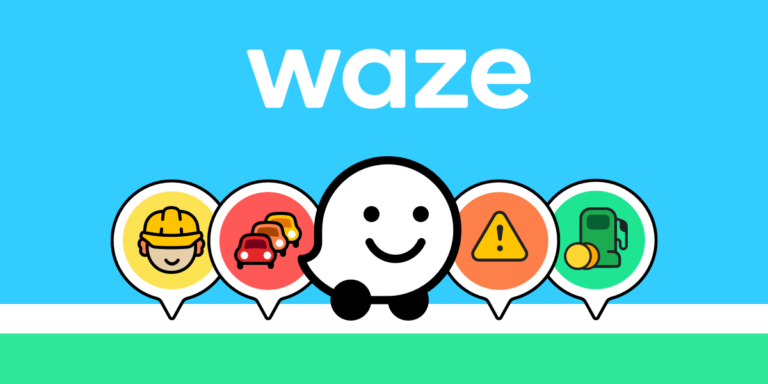Introduction
ADPList is a global community platform connecting individuals seeking mentorship with experienced professionals (primarily in design, product management, engineering, and marketing) who volunteer their time for free 1:1 sessions, group sessions, and Q&A. Unlike platforms driven by monetary exchange, ADPList relies heavily on the goodwill of mentors and the engagement of mentees. To facilitate connections, build trust, and encourage participation from both sides, ADPList employs subtle but important gamification and reputation mechanics centered around visibility, social proof, and contribution tracking.
The Challenge: Facilitating Free Mentorship at Scale
Building a thriving community based on free, volunteer mentorship presents unique challenges:
- Mentor Motivation & Retention: Why should busy professionals consistently offer free sessions? How can the platform recognize and retain valuable mentors?
- Mentee Trust & Choice: How can mentees identify and trust suitable mentors from a large pool of volunteers?
- Quality Assurance: How to signal the quality and reliability of mentors and the value of sessions?
- Encouraging Participation: How to motivate both mentors to offer sessions and mentees to actively book and prepare for them?
- Community Building: How to foster a sense of community and shared purpose beyond individual mentor-mentee interactions?
ADPList addresses these by building a system where reputation, visibility, and contribution metrics serve as key motivators and trust signals.
Gamification Elements in ADPList
ADPList’s gamification focuses on reputation, contribution tracking, and social validation rather than explicit points or competitive leaderboards:
- Mentor Session Count:
- Mechanic: A mentor’s profile prominently displays the total number of mentorship sessions they have completed on the platform.
- Gamification Principle: Score Keeping (Session Count), Experience Indicator, Status Symbol (implicit).
- Impact: Provides a clear, quantifiable measure of a mentor’s activity level and experience within the ADPList community. A higher count signals dedication and experience, acting as a trust indicator for potential mentees.
- Reviews and Testimonials:
- Mechanic: After a session, mentees are prompted to leave a review or testimonial for their mentor. These reviews (often qualitative) are displayed publicly on the mentor’s profile.
- Gamification Principle: Social Proof, Reputation System, Peer Feedback, Quality Indicator.
- Impact: This is a crucial element. Positive reviews build a mentor’s reputation, increase their credibility, and make them more appealing to future mentees. It provides strong social validation for mentors and valuable decision-making information for mentees.
- Badges:
- Mechanic: Mentors can earn specific digital badges displayed on their profile for various milestones and contributions. Examples might include badges for completing a certain number of sessions (e.g., 10, 50, 100+), high review ratings, hosting group sessions, contributing content, or being an early adopter.
- Gamification Principle: Badges, Achievements, Milestones, Recognition, Specialization (e.g., Group Session Host).
- Impact: Provides visible recognition for specific achievements and contributions beyond just the raw session count. Acts as collectible status symbols and further differentiates experienced or highly-rated mentors.
- Featured Mentors / Top Mentors:
- Mechanic: ADPList often highlights or features specific mentors on its platform (e.g., on the homepage, in newsletters, or special lists) based on factors like activity, ratings, expertise, or contributions.
- Gamification Principle: Social Spotlight, Recognition, Elite Status (implicit), Leaderboard (curated).
- Impact: Provides significant visibility and recognition for selected mentors, acting as a powerful status symbol and aspirational goal. Being featured increases a mentor’s visibility and booking requests.
- Profile Completeness & Credentials:
- Mechanic: Mentors build detailed profiles showcasing their experience, skills, company affiliations, and areas they can help with. Mentees also build profiles outlining their goals.
- Gamification Principle: Profile Building, Identity Representation, Skill Tagging, Matching Mechanic (implicit).
- Impact: Encourages users to present themselves effectively. For mentors, a detailed profile with clear credentials acts as a signal of expertise and helps attract relevant mentees, gamifying self-presentation for better matching.
- Group Sessions & Workshops:
- Mechanic: Mentors can host group sessions or workshops open to multiple mentees. This allows them to share knowledge more broadly. Hosting these can contribute to specific badges or recognition.
- Gamification Principle: Content Creation Incentive, Scaled Contribution, Community Event.
- Impact: Provides an alternative way for mentors to contribute and gain recognition beyond 1:1 sessions. Offers value to a larger number of mentees simultaneously.
- Booking System & Calendar Integration (Ease of Use):
- Mechanic: A streamlined system for mentors to set availability and for mentees to book sessions, often integrating with calendars.
- Gamification Principle: Reduced Friction, Scheduling Mechanic, Appointment System.
- Impact: While primarily functional, making the core interaction (booking a session) easy and efficient reduces barriers to participation for both mentors and mentees, facilitating the “gameplay” of connecting.
Impact on Mentor Motivation and Community Health
ADPList’s reputation-focused gamification aims to:
- Intrinsically Motivate Mentors: Recognition, positive reviews, badges, and the feeling of “giving back” serve as primary rewards, tapping into altruism and professional status.
- Build Trust: Reviews and visible contribution metrics (session counts, badges) help mentees choose mentors confidently.
- Encourage Quality: The desire for positive reviews motivates mentors to provide valuable sessions.
- Foster Contribution: Badges and featured spots incentivize mentors to be active and contribute in various ways (1:1, group sessions).
- Create a Positive Community: Focuses on mutual support and knowledge sharing rather than direct competition.
Overall Score: 3.9/5
ADPList earns a 3.9/5 for its effective use of reputation-based and intrinsic gamification to power a large-scale volunteer mentorship community. It successfully leverages social proof (reviews), contribution tracking (session counts), and recognition (badges, featured spots) to motivate mentors and build trust for mentees. Its strength lies in aligning these mechanics with the core values of mentorship: giving back, sharing knowledge, and building professional reputation.
The score reflects that the gamification is relatively light and heavily reliant on intrinsic motivation and social validation rather than complex game systems or extrinsic rewards. Its success hinges on the goodwill of mentors. There are fewer explicit game loops compared to platforms focused on points or competition. Scaling quality control based primarily on reviews can also be challenging. It’s gamification designed to facilitate and recognize contribution within a specific altruistic context.
Pros of ADPList’s Gamification Approach
- Leverages Intrinsic Motivation: Taps effectively into mentors’ desire to give back and build reputation.
- Builds Trust Through Social Proof: Reviews are central to mentor selection and credibility.
- Recognizes Contribution: Session counts and badges provide visible markers of effort.
- Provides Status & Visibility: Featured spots and badges offer non-monetary rewards.
- Supports Community Values: Focuses on positive reinforcement and knowledge sharing.
- Low Friction: Simple mechanics don’t overshadow the core mentorship interaction.
Cons of ADPList’s Gamification Approach
- Relies Heavily on Volunteerism: Mentor motivation may fluctuate; potential for burnout.
- Light Gamification Mechanics: Lacks deep points systems, levels, or strong competition found elsewhere.
- Potential for Review Inflation/Bias: Mentees might feel obligated to leave positive reviews for free help.
- Scalability of Quality Control: Ensuring consistent quality across thousands of volunteer mentors is difficult.
- Limited Extrinsic Rewards: Fewer tangible rewards compared to platforms with paid tiers or virtual goods.
- Mentor Discovery Challenge: Finding the right mentor can still be difficult despite reputation signals.
Conclusion
ADPList demonstrates a successful model for gamifying a platform built on volunteerism and intrinsic motivation. By focusing on reputation mechanics like reviews, contribution tracking (session counts), and recognition through badges and featured spots, it effectively encourages participation from both mentors and mentees. It proves that gamification doesn’t always need complex points systems or financial rewards; leveraging social proof, status, and the inherent satisfaction of contributing to a community can be powerful drivers, especially within a mission-driven context like free mentorship.
Estimated reading time: 7 minutes




